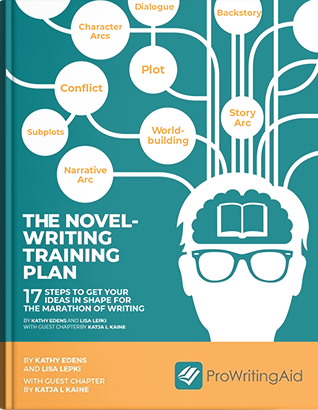
Many people have opinions about what craft books fiction writers need to read to take their game to a new level.
We've looked at suggestions from New York Magazine, Poets & Writers, Penguin Random House, Goodreads, author Jerry Jenkins, and others to create our top 25 best craft books for fiction writers. Here, in no particular order, are the results.
The list
1. The Elements of Style by William Strunk, Jr.

Surely this tops everyone’s list of must-have books on their shelves for perfecting their craft. First published in 1918, it is the style manual everyone consults when they want to improve their writing skills. This book was the first one to promote writing in plain English with your readers in mind.
2. On Writing: A Memoir of the Craft by Stephen King

An often-quoted treatise on writing by a best-selling author, you get part memoir, part instruction on how to write well according to the King of Horror. King reveals how he emerged as a writer and offers his best advice and tools of the trade for writers.
3. Story: Substance, Structure, Style, and the Principles of Screenwriting by Robert McKee

Not only for screenwriters, this book includes all the inspiration and experience McKee puts into his wildly popular screenwriting workshops. Writers, producers, development executives, agents, and more attend his lectures and read his book to learn the "magic" of story construction and the relationship between structure and character.
4. Bird by Bird: Some Instructions on Writing and Life by Anne Lamott
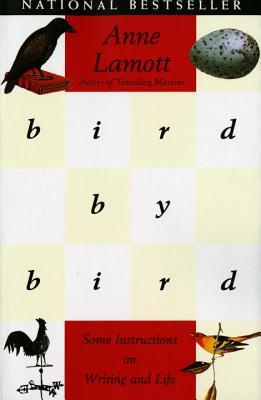
With a wonderful family story behind the reason for the title, Lamott uses her platform to give you a step-by-step guide on writing and managing the writer’s life. This book instructs you to keep your eyes open and inspires you through writing and life.
5. Steering the Craft: Exercises and Discussions on Story Writing for the Lone Navigator or the Mutinous Crew by Ursula K. Le Guin

Le Guin compares writing to "steering a craft" down a river of words. She challenges your definition of a story, requiring you to see a story as "change." This can result from conflict, per Le Guin, but also "relating, finding, losing, bearing, discovering, [or] parting."
6. Writing the Breakout Novel by Donald Maass

Both author and literary agent, Donald Maass offers practical guidance for the first-time novelist as well as already-published authors. He claims breakout novels contain the same elements regardless of genre and he can show you writing techniques to write the next big hit.
7. Story Genius: How to Outline Your Novel Using the Secrets of Brain Science by Lisa Cron

Using science-based insights, this book shows you how story structure is built into your brain and how to plumb the details to generate a story scene by scene. In fact, by the end, you’ll get a blueprint of how to write your best novel yet.
8. Self-Editing for Fiction Writers: How to Edit Yourself Into Print by Renni Browne & Dave King

Two professional editors teach you the techniques of editing that turns manuscripts into published novels or short stories. You learn the same processes an expert editor goes through to perfect your manuscript. You’ll also find plenty of examples from hundreds of books they’ve edited.
9. Writing Down the Bones: Freeing the Writer Within by Natalie Goldberg

Bringing together Zen meditation and writing uniquely, Goldberg believes that your writing practice is no different from your Zen practice. It’s backed by "two thousand years of studying the mind."
10. Save the Cat: The Last Book on Screenwriting You’ll Ever Need by Blake Snyder

Told by a showbiz veteran, this book reveals the secrets you need to know to sell your script… if you can save the cat. This is just one of his immutable laws for making your idea more marketable and your script more compelling.
11. 45 Master Characters: Mythic Models for Creating Original Characters by Victoria Lynn Schmidt

Here you’ll find the most common male and female archetypes and instructions on how to use them to create original characters. Schmidt also includes how other authors used these archetypes to bring life to their novels, films, and television.
12. Stein on Writing by Sol Stein
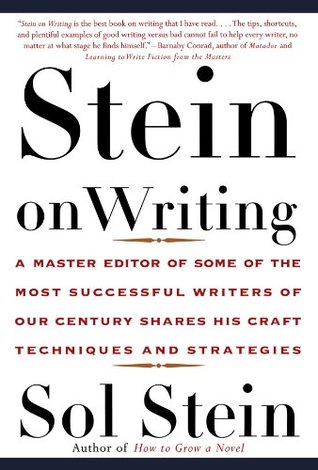
This book is subtitled "A Master Editor of Some of the Most Successful Writers of Our Century Shares His Craft Techniques and Strategies." For both fiction and nonfiction writers, Stein’s advice is good for newcomers or seasoned authors, amateurs and professionals.
13. Zen in the Art of Writing by Ray Bradbury

This book of must-read essays on writing and creativity is full of inspiration from a master storyteller. Get practical tips on everything from finding original ideas to developing your own style and voice. You’ll also get a peek into Bradbury’s remarkable career.
14. The Emotion Thesaurus: A Writer’s Guide to Character Expression by Angela Ackerman

If one of your biggest problems is conveying your character’s emotions, read this book to learn how in a unique and compelling way. With 130 emotions highlighted, you’ll learn about possible body language cues, thoughts, and visceral responses for each emotion.
15. The Writer’s Journey: Mythic Structure for Writers by Christopher Vogler

Says Vogler, "all stories consist of a few common structural elements found universally in myths, fairy tales, dreams, and movies." Based on psychological ideas from Carl Jung and myth ideas from Joseph Campbell, authors use this book to understand what sells and to uncover a blueprint to create their own stories.
16. Aspects of the Novel by E. M. Forster

This collection of Forster’s lectures given at Cambridge University in the 1920s helped writers discuss craft elements like flat and round characters, elements of plot, and others still in use today. You’ll find these essays particularly useful for thinking about plot.
17. Letters to a Young Writer by Colum McCann
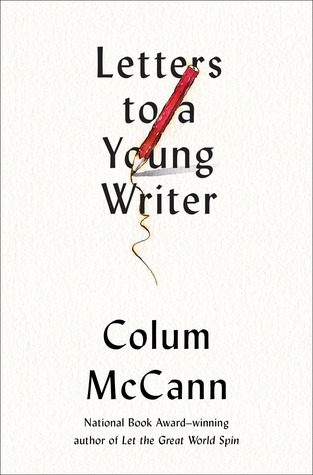
National Book Award-winning author McCann shares his thoughts on craft, dialogue, characters, and even finding an agent and selecting an MFA program. This is today’s generation of writers’ fatherly guidance on living as a writer.
18. The Artist’s Way: A Spiritual Path to Higher Creativity by Julia Cameron

Have you ever heard of "Morning Pages"? This book guides you through a twelve-week process of building and strengthening your creative life by using her two tools—morning pages and the artist date. She also includes hundreds of inspiration exercises and activities to get you pumped.
19. The Business of Being a Writer by Jane Friedman

Everything you need to know about the publishing industry, you’ll find in this book. Especially if you want a long-term career of writing, read this book for in-depth and current information to help position yourself. You’ll learn fundamental business principles as well as how to use digital tools and take advantage of online media.
20. Pep Talks for Writers by Grant Faulkner

Faulkner is the Executive Director of National Novel Writing Month (NaNoWriMo), and he offers concrete writing tips. Unlike other books that give vague and artistic explanations, this book give you actionable advice on everything from career choices to plot decisions.
21. 2,000 to 10,000: How to Write Faster, Write Better, and Write More of What You Love by Rachel Aaron
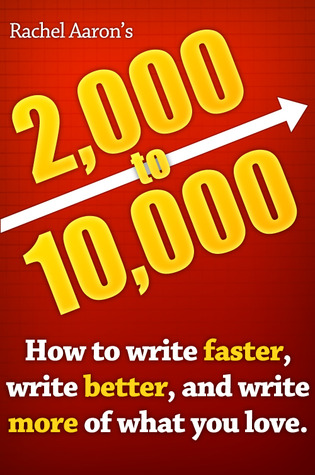
Rachel Aaron explains exactly how she boosted her daily writing from 2,000 words to over 10,000 each day without sacrificing quality or increasing the time she had to write. Get practical writing advice to increase your daily output, among other areas like creating characters, plot structure, and more.
22. Write. Publish. Repeat: The No-Luck-Required Guide to Self-Publishing Success by Sean Platt & Johnny B. Truant

Whether you’re an experienced writer or a beginner, you can learn exactly how these two authors became wildly successful indie publishers. They show you how to turn what you love into a logical, sustainable business.
23. Structuring Your Novel: Essential Keys for Writing an Outstanding Story by K. M. Weiland

Besides her best-selling book Outlining Your Novel, Weiland lays out an understanding of proper story and scene structure. This book helps you identify common structural weaknesses and flip them into amazing strengths.
24. Steal Like an Artist: 10 Things Nobody Told You About Being Creative by Austin Kleon

You don’t need genius; just be yourself. Kleon claims creativity is everywhere and for everyone, and he gives you examples, exercises, and more to help you get in touch with your creative side. He also shares the 10 things he wishes someone had told him when he was starting out.
25. Your favorite dictionary/thesaurus
No list would be complete without your favorite dictionary/thesaurus combination. Whether you adhere to Oxford Dictionary all the way or you prefer Merriam-Webster, you can choose from tons of dictionaries/thesauruses online and in print to make sure you have the right word for every situation.
Final thoughts
There are so many other great craft books out there that this list could conceivably double. What’s your go-to craft book that didn’t get mentioned? Let’s start a list in the comments below.
Looking for more Essential Reading lists? We've got you covered!
- The Best Mystery Novels of All Time
- The Best Dystopian Novels of All Time
- The Best Sci-Fi Novels of All Time
- The Best Historical Fiction Novels of All Time
- The Best Horror Novels of All Time
- The Best Thriller Novels of All Time
- The Best Romance Novels of All Time
- The Best Books Ever Written in Each Genre

